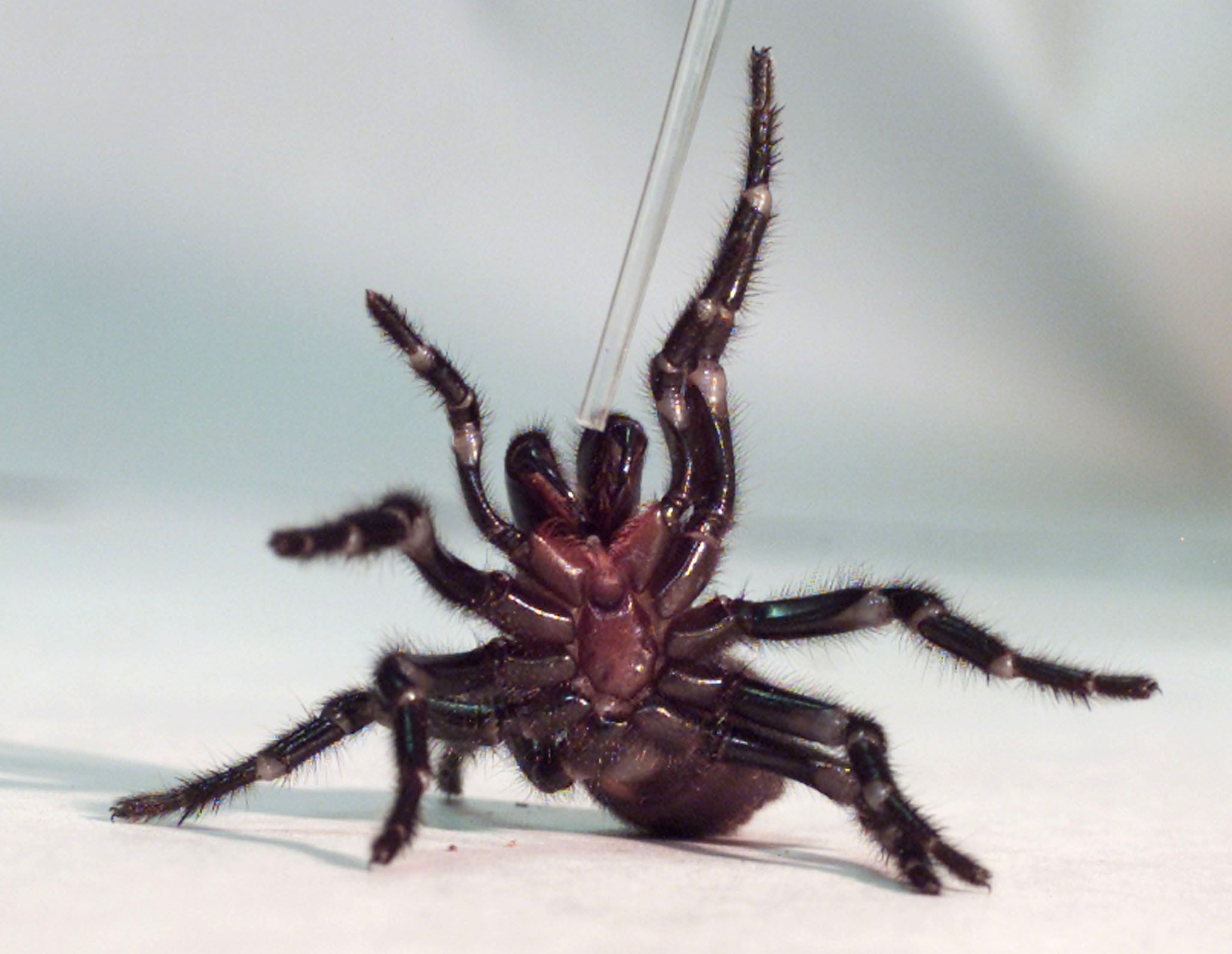
Malaria remains one of the biggest killers in Africa and increasing pesticide resistance among mosquitoes carrying the deadly virus is posing a conundrum for scientists and health workers.
But a study by the University of Maryland has pinpointed a potential, if strange, means of tackling the issue: Using the toxins from scorpion and spider venom to genetically engineer fungi, which can then be used to kill off malaria-carrying mosquitoes or stop them from biting.
In the study, published in the journal Scientific Reports on Tuesday, researchers used a genetically engineered version of the Metarhizium pingshaensei fungus—which occurs naturally in China—in tests conducted in Burkina Faso, a sub-Saharan country in West Africa.
The fungus is already a natural mosquito killer: When its spores, or reproductive cells, come into contact with a mosquito's exoskeleton, they penetrate through into the insect's internal organs to kill it from the inside out. But high concentrations of the spores are required to kill the mosquitoes.
From the venom of scorpions and spiders, researchers isolated genes that express neurotoxins—chemicals that disable the nervous system—and engineered these genes into the fungus's DNA. The team also included a genetic failsafe that ensured that the toxins only activated when they came into contact with insect blood. So if another animal or human ingested the fungus, for example, the poison would not take effect.
Related: The world's first malaria vaccine is going to be trialed in Ghana, Kenya and Malawi
The scientists found that the mutant fungus killed insecticide-resistant mosquitoes more quickly and efficiently than the unaltered fungus. Before killing the insects, the mutant fungal spores also stopped the mosquitoes from feeding, effectively disabling them as vectors of malaria even before they died.
"Controlling the mosquito is currently the best way of reducing malaria and dengue and chikungunya and all those other disease which mosquitoes carry," Raymond John St. Leger, a professor of entomology at the University of Maryland and the study leader, tells Newsweek.
Malaria is a parasitic disease that is passed to humans through the bites of infected Anopheles mosquitoes. Symptoms appear around two weeks after the insect bite and include fever, headache and chills. If not treated within 24 hours, the parasite can result in severe illness or death.
There were around 212 million cases of malaria in 2015, with 429,000 deaths from the disease, according to the World Health Organization (WHO). Africa bears a disproportionate burden of malaria cases: Ninety percent of malaria infections and 92 percent of fatalities occurred on the continent in 2015.
There have been substantial gains in the fight against malaria in recent years; The incidence of the disease fell by more than a fifth between 2010 and 2015. But the WHO has warned that increasing resistance to insecticides among malaria-carrying mosquitoes is threatening to reverse those gains: Since 2010, some 60 countries have reported resistance to at least one type of insecticide among mosquitoes: Some 98 percent of mosquitoes in Burkina Faso are insecticide-resistant, according to St. Leger.
St. Leger says that the most effective toxins used in the study—one of which was derived from the North African desert scorpion, the other from the Australian Blue Mountains funnel-web spider—are both approved by the U.S. Environmental Protection Agency as safe for field use and would not poison birds, mammals and other insects, like bees. The fungus doesn't pose a risk to humans either, says St. Leger, as it would not survive in the human body.
In the study, researchers smeared a black sheet with the mutant fungus and left it inside a house; mosquitoes tend to feed and rest after a blood meal inside. They found that the mutant fungus was far better at tackling the insecticide-resistant mosquitoes: The toxins block mineral channels in the mosquitoes' body that are required for the transmission of nerve impulses and dull the insects' appetite, meaning they are less likely to feed. Also, far fewer of the mutant spores are required than with the regular fungal spores. "We can get to one spore killing one mosquito in a few days," says St. Leger.
He says that the research team is continuing with trials in Burkina Faso and has no time frame for when the technique might become widely available; the researchers want to consult local people and medical professionals on how it might be used before deciding how to proceed. St. Leger suggests that one method would be to smear mosquito bed nets with the mutant fungus.
Uncommon Knowledge
Newsweek is committed to challenging conventional wisdom and finding connections in the search for common ground.
Newsweek is committed to challenging conventional wisdom and finding connections in the search for common ground.
About the writer
Conor is a staff writer for Newsweek covering Africa, with a focus on Nigeria, security and conflict.





